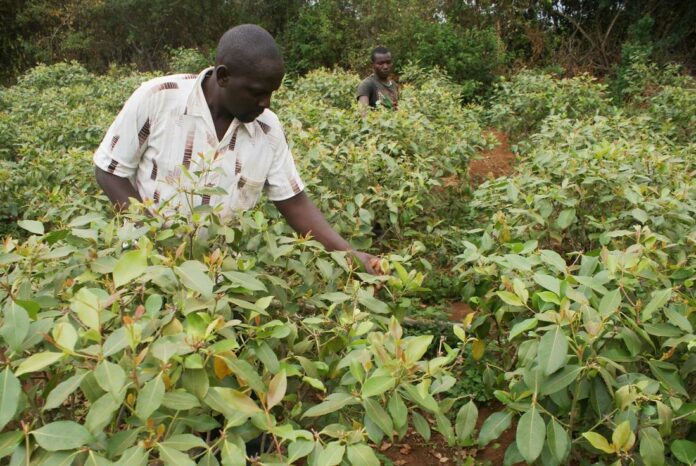Muguka farming is the economic mainstay for most farmers in Mbeere Embu County, and thousands of farmers in the region are ditching traditional crops such as maize for this ‘Green gold.’
Albert Njeru is one of the farmers who has found success in the stimulant popular for relieving fatigue. Njeru grows the crop on a 2-acre farm in his home in Kanyuambora, Embu County.
He notes that the crop is more profitable than maize and beans, and earn him Ksh30,000 in just one week, five times more than he used to make selling maize or beans.
“Muguka gives me a lot of money. It is green gold. Farming maize or beans used to give me losses” said Njeru.
According to Francis Kimori, chairman of the Mbeere Muguka Farmers Sacco, a savings and credit cooperative, four out of every five households around the Mount Kenya region, including in Embu County, are farming the stimulant in some quantity.
Is it profitable? Everything you need to know about sunflower farming
Kimori says that the stimulant has changed livelihoods, with people in the region upgrading from mud huts to modern stone houses.
Most of the farmers grow the crop and transport it to other counties including Nairobi and Mombasa where it fetches better prices.
A packet of muguka ranges from Sh20-50 unlike Miraa which fetches a higher price. Miraa is grown in Embu’s neighboring County, Meru.
Despite its potential, the Muguka business has, over the years, faced backlash, with authorities calling for its ban on the grounds that it is spoiling the youths.
In 2018, legislators in Mombasa and Kwale counties lobbied unsuccessfully for a sales and consumption ban on muguka over fears of addiction among young people.
The legislators observed that many students had dropped out of school due to consumption of muguka. The plant, whose leaves are chewed raw, has been banned in several African and European countries.
Despite all the risks attached to muguka, many Kenyan farmers are hoping it will save their livelihoods.











